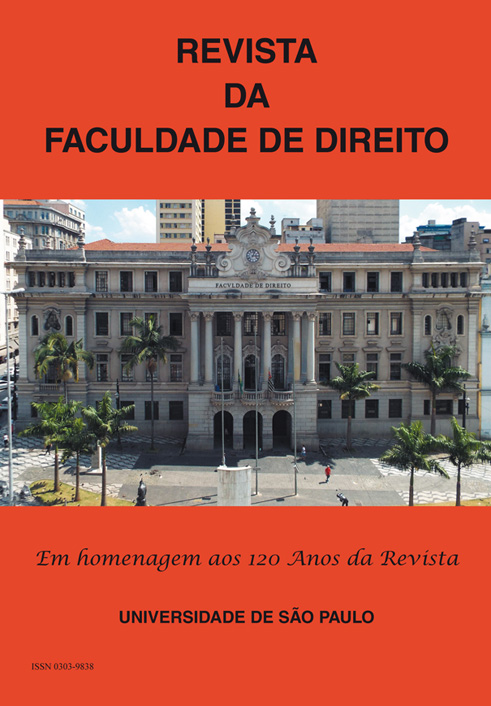The so-called life-saving contract in the classical Roman Law
Keywords:
Freedom of contract, Freedom of will, Inominated contracts.Abstract
The freedom of contract, as it is currently defined, was unknown in Roman law. In the Roman law of obligations, it had called numerus clausus: the parties could not perform contracts other than those to an actio was expected. On the other hand, one can see that this limitation of the numerus clausus could be outlined without problems by legal praxis. In contract to save the life of someone, an individual receives something or becomes lender of third parties, when saved him from an act of violence. Moreover, such a contract is a good example of how the Romans dealt with freedom of contract.
Downloads
References
ARTNER, Michael. Agere praescriptis verbis: atypische Geschäftsinhalte und klassisches Formularverfahren. Berlin, 2002.
BEHRENDS, Okko. Besprechung von O. Kahn, Der Nothilfevertrag im römischen Recht, in SZ 96 (1979), S. 356ff.
BETTI, Emilio. Der Typenzwang bei den römischen Rechtsgeschäften und die sogenannte Typenfreiheit des heutigen Rechts in Festschrift L. Wenger, München, 1944.
BIONDI, Biondo. Contratto e stipulatio: corso di lezioni, Milano, 1953.
BURDESE, Alberto. I contratti innominati, in Derecho Romano de obligaciones (Festschrift Murga Gener), Madrid, 1994, S. 63ff.
CASAVOLA, Franco. Lex Cincia: contributo alla storia delle origini della donazione romana, Napoli, 1960.
GRÖSCHLER, Peter. Actiones in factum – Eine Untersuchung zur Klage-Neuschöpfung im nichtvertraglichen Bereich, Berlin, 2002.
KAHN, Otto. Der Nothilfevertrag im römischen Recht, Botha’s Hill, 1977, S. 5f.
KASER, Max. Das römische Privatrecht I – Das altrömische, das vorklassische und klassische Recht, München, 19712.
KASER, Max/Knütel. Rolf, Römisches Privatrecht, München, 200518.
MAYER-Maly, Theo Privatautonomie und Vertragsethik im Digestenrecht, in Iura 6 (1955), S. 128ff.
MEDICUS, Dieter. Zur Geschichte des Senatus Consultum Velleianum, Köln u.a, 1957.
SARGENTI, M. Actio civilis in factum e actio praescriptis verbis in SDHI 72 (2006), S. 229ff.
SARGENTI, M. Actio civilis in factum‘ e ‚actio praescriptis verbis‘ – ancora una riflessione in Iuris vincula – Studi in onore di Mario Talamanca 7 (2001), S. 237ff.
SCHERRER, Werner. Die geschichtliche Entwicklung des Prinzips der Vertragsfreiheit, Basel, 1948.
SCIANDRELLO, Enrico. Studi sul contratto estimatorio e sulla permuta nel diritto romano, Trento, 2011.
WESEL, Uwe. Juristische Weltkunde: Eine Einführung in das Recht, Frankfurt, 1984.
ZHANG, Lihong. Contratti innominati nel diritto romano – Impostazioni di Labeone e di Aristone, Milano, 2007.
Downloads
Published
Issue
Section
License
Copyright (c) 2013 Revista da Faculdade de Direito, Universidade de São Paulo

This work is licensed under a Creative Commons Attribution-NonCommercial-ShareAlike 4.0 International License.


